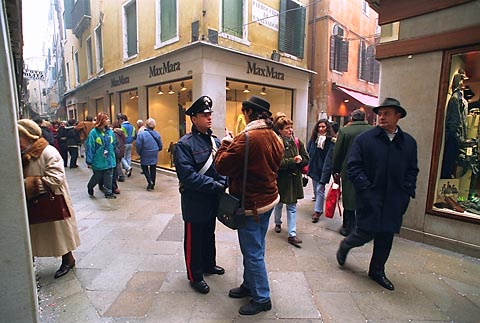I hear a lot of people talk about alternative energy as the great saviour of our way of life. Of course, some are speaking about coal and nuclear power. But more environmentally-minded folk include wind and solar power, and biofuels like biodiesel and ethanol.
I think conservation is the #1 priority. I don't think that we can continue to use the amount of energy. Even if we could produce an equal amount of alternative fuels and electricity, that would really only be enough for the current developed world, and it still leaves most people SOL.
I don't think we can produce the same amounts of energy alternatively to match our current usage. Take biofuels. I vaguely remember reading that, because of the petroleum-dependent food production system on which we currently rely, biofuels actually result in a net energy loss. For each calorie of food we consume it requires at least 10 calories of petroleum energy to farm, transport, and process. So why turn fuel-sucking food into fuel?
I decided to investigate a bit more.
This study finds that producing ethanol and biodiesel is not worth the energy, "you use more energy to produce these fuels than you get out from the combustion of these products."
Not only inefficient, but "a humanitarian and environmental disaster", says
George Monbiot, presenting a
chilling vision, in which "most of the arable surface of the planet will be deployed to produce food for cars, not people." He reminds us that markets respond to profit, not hunger. Those who need food the most are exactly the ones with the least amount of money to buy it, and so the monied person's car will always win out. He reminds us that even today, those who buy meat products have more purchasing power, so grain is fed to animals instead of to starving kids.
Instead of burning soy oil in our SUV's then, what is needed is to drive less and create sustainable production and consumption practices. For example, local organic farming, moderately dense city infrastructure, and significant green belts would not only be much more ecologically sound, but would also result in a higher quality of life than sitting for 2 hours a day in a freeway traffic jam eating a flavour-injected McDonald's burger, even if your car smelled like french fries.
So I say yes to re-envisioning our economy and no to biofuels (except for the few that are using up all that nasty
leftover french fry grease: more power to 'em).
Topic:
Environment,
Food Politics
 Then he offers a theoretical solution with a reference design for a carfree city. His suggested topology incorporates a large amount of public space and green space with moderately dense development.
Then he offers a theoretical solution with a reference design for a carfree city. His suggested topology incorporates a large amount of public space and green space with moderately dense development. 